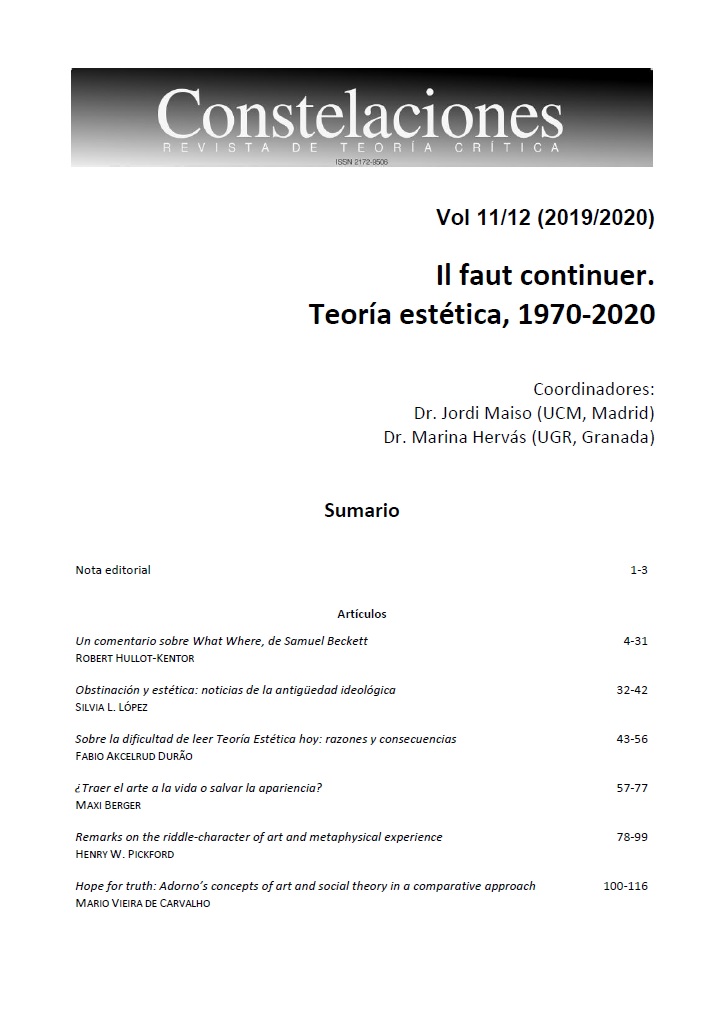"Dress of an Invisible Body": The Fashion in T. W. Adorno’s Aesthetic Theory
Keywords:
Charles Baudelaire, Georg Simmel, Walter Benjamin, culture industryAbstract
Since the middle of the 19th century, intellectuals like Charles Baudelaire, in his essay “The Artist of Modern Life" and Georg Simmel, in his Philosophy of Fashion took fashion as a subject of their theoretical reflections on culture and society. In the decade of 1930 Walter Benjamin, mainly in his project of Paris’ passages, focused quite fruitfully on the role fashion played in the culture of the 19th and beginning of the 20th centuries, pointing to the aspects both of alienating fetishism and of anti-ideological proximity of art. More than thirty years later, in his Aesthetic Theory, Theodor Adorno, taking into account the contributions of Baudelaire and Benjamin, approached the topic of fashion, considering, on one hand, its submission to the dictation of culture industry and, on the other hand, the possibility of what he calls “innervation" between fashion and the authentic art, through which this one takes advantage of being always up to date, avoiding nonetheless fashion's subservient attitude towards the culture industry.
Downloads
Downloads
Published
How to Cite
Issue
Section
License
Authors who have publications with this journal accept the following terms:
1. Authors will retain their copyright and grant the journal the right of first publication of their work, which will be simultaneously subject to the License of recognition of Creative Commons CC BY-NC-SA 4.0 that allows third parties to share, redistribute and adapt the work provided it is for non-commercial purposes and its author and first publication in this journal is indicated.
2. Authors may adopt other non-exclusive distribution license agreements for the version of the published work (e.g., depositing it in an institutional electronic archive or publishing it in a monographic volume) provided that the initial publication in this journal is indicated.
3. Authors are permitted and encouraged to disseminate their work via the Internet (e.g., in institutional telematic archives or on their website) before and during the submission process, which can produce interesting exchanges and increase citations of the published work. (See The Effect of Open Access).
Data confidentiality
1. Constelaciones. Revista de Teoría Crítica guarantees that the data you send us will only be used to meet the requests made in this message.
2. Your data will not be passed on to third parties.
3. You may request that your data be removed from our records at any time.





